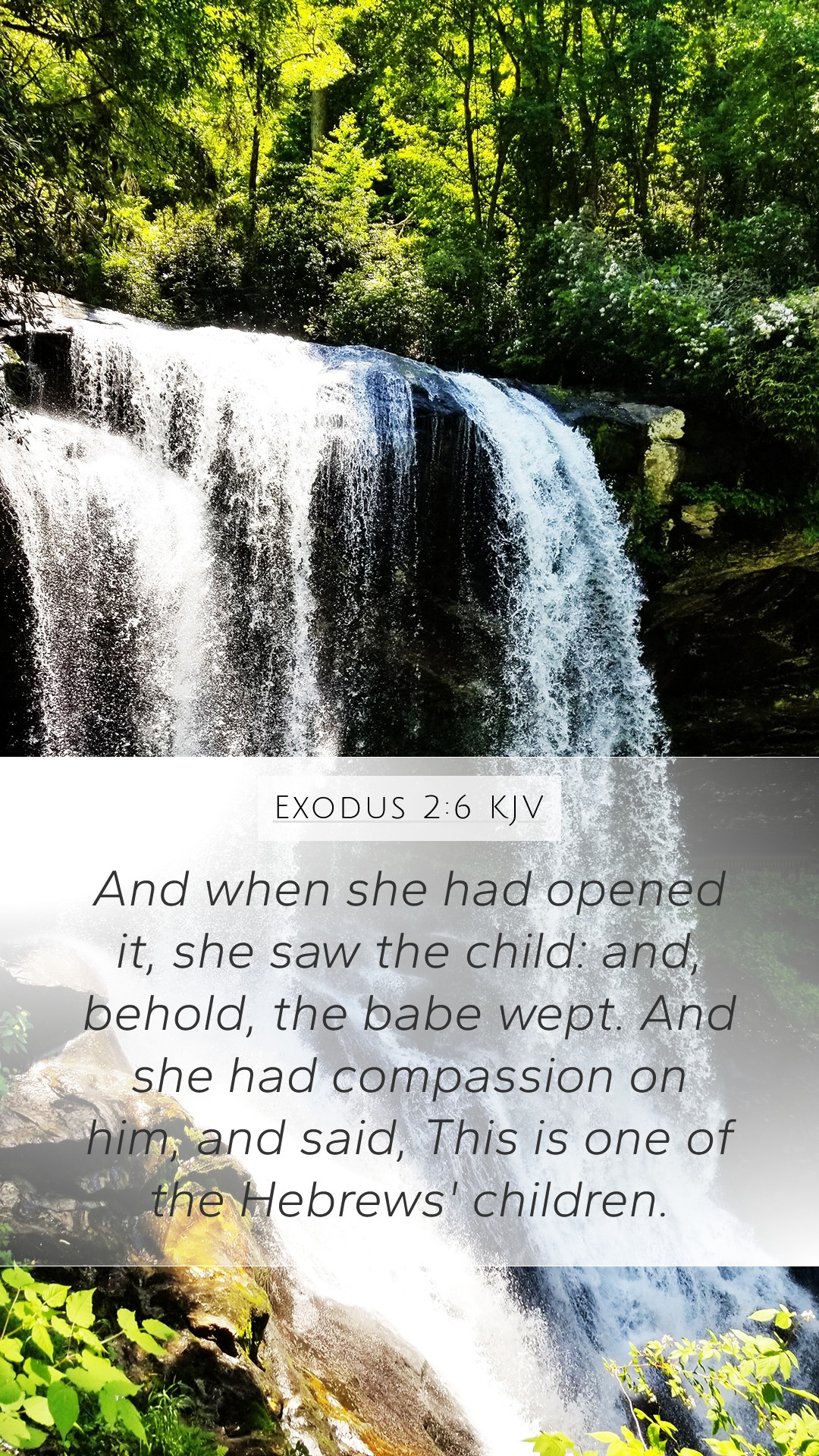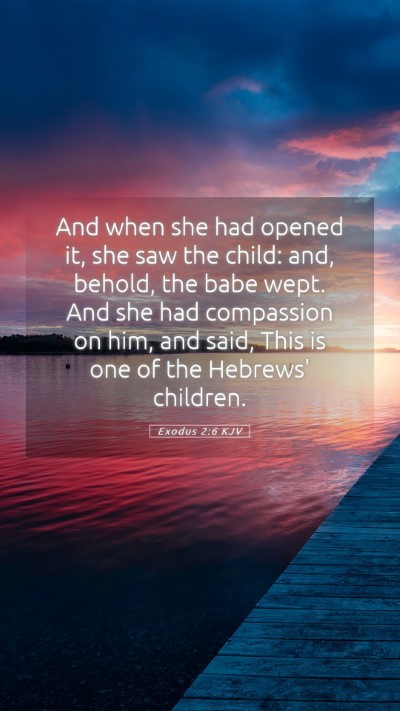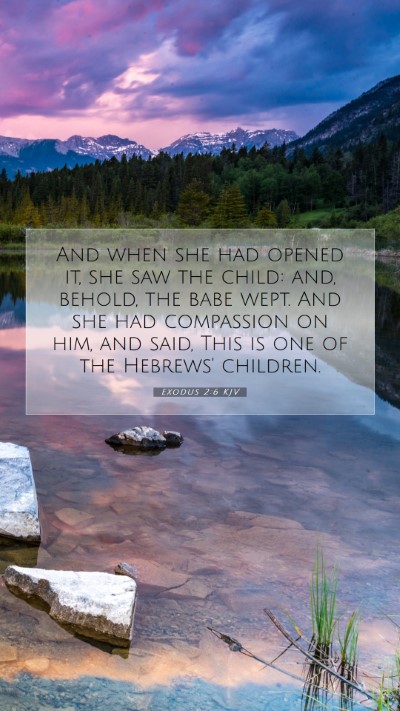Understanding Exodus 2:6: A Comprehensive Bible Verse Explanation
Exodus 2:6 states, "And when she had opened it, she saw the child: and, behold, the babe wept. And she had compassion on him, and said, This is one of the Hebrews' children." This verse is pivotal within the narrative of Moses and highlights themes of divine providence, compassion, and the unfolding of God's plan for His people.
Bible Verse Meanings and Interpretations
The verse presents a moment of significant emotional response from Pharaoh's daughter, who discovers Moses in a basket among the rushes along the riverbanks. The following insights are drawn from respected public domain commentaries:
- Matthew Henry: Henry emphasizes the compassion shown by Pharaoh's daughter, who recognizes the plight of a Hebrew child and acts with mercy. Her actions set the stage for Moses' future role as a leader of Israel, illustrating how God often works through unexpected individuals to fulfill His purposes.
- Albert Barnes: Barnes notes the historical context that Pharaoh’s daughter defied her father’s decree against Hebrew children. By saving Moses, she creates a crucial turning point in Israel's history, demonstrating that God's plans often thrive against human opposition.
- Adam Clarke: Clarke highlights the deep emotional connection initiated between Moses and Pharaoh's daughter due to the child's tears. He discusses the symbolism of water and life in Hebrew scripture, suggesting divine intervention is at play in this narrative.
Significance of Pharaoh's Daughter's Compassion
This act of compassion is not only a personal response but also a divine orchestration, showcasing how God's providence works through the hearts of individuals, even those outside of the covenant community. The verse stresses how mercy can transcend cultural and social barriers, reflecting God's love and care for the oppressed.
Historical Context of Exodus 2:6
For better understanding, it is essential to recognize the circumstances surrounding the birth of Moses. The Israelites were under severe oppression in Egypt, and the edict was to kill all male Hebrew infants. Pharaoh's daughter's decision to save Moses can be seen as a significant counteraction against tyranny.
Biblical Exegesis and Analysis
In analyzing this verse, we must consider:
- The emotional state of Pharaoh's daughter contrasted with her father's decree.
- The cultural implications of her actions within an oppressive regime.
- The foreshadowing of Moses’ significant role in leading the Israelites to liberation.
Application of Exodus 2:6 to Daily Life
This verse encourages believers to recognize and respond with compassion to the suffering of others. It also serves as a reminder of the importance of standing against unjust practices, highlighting the impact one person can have when they act with kindness and courage.
Cross References
Exodus 2:6 has several biblical cross references that enhance our understanding:
- Exodus 1:22: Discusses Pharaoh's decree to kill male Hebrew children.
- Acts 7:20-22: Stephen recounts the story of Moses and his upbringing in Pharaoh's house.
- Hebrews 11:23: Mentions the faith of Moses' parents in hiding him because he was no ordinary child.
Conclusion
Exodus 2:6 encapsulates a profound moment of mercy amidst oppression, illustrating God's providential care for His people. Through the lens of biblical commentary, we gain a deeper understanding of the significance of this verse and its applications in our lives today.
Further Bible Study Resources
For those looking to deepen their knowledge and engage in Bible study groups or online Bible study lessons, consider using resources such as:
- Bible study guides that focus on the Exodus narrative.
- Scripture analysis tools to aid in understanding complex passages.
- Online courses focusing on Old Testament studies.


